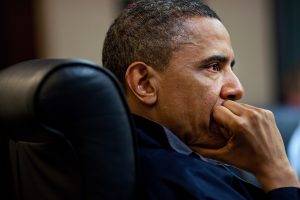[ad_1]
Prannoy Roy speaks to Nobel laureate Professor Abdulrazak Gurnah.
NDTV’s Prannoy Roy spoke to Nobel Laureate Professor Abdulrazak Gurnah.
Here is the complete transcript of the interview:
NDTV: Abdulrazak Gurnah, thanks very, very a lot for becoming a member of us. It is an actual honour for all of us.
Prof Abdulrazak Gurnah: It is pleasure, for me.
NDTV: Professor Gurnah, I simply love your writing and your work. It is in truth, very transferring and it made me weep on many events. Your work can also be very, crucial…
Prof Abdulrazak Gurnah: I am sorry.
NDTV: Your work can also be crucial in understanding colonialism, and the way it impacts the lives of households. You have been born and introduced up in Zanzibar, now part of Tanzania, and also you left there once you have been 18. And also you arrived in England in 1967. The truth is you arrived in England at a horrible time, the time of Enoch Powell, and all that anti-immigrant rhetoric. You need to have been actually homesick in your lovely nation and your loved ones. The truth is, your first guide out of your 10 books known as Reminiscence of Departure. Did you ever consider leaving England and going again to Zanzibar? And what have been among the experiences you confronted after you first arrived?
Prof Abdulrazak Gurnah: Properly, thanks. To begin with, for inviting me after which in your introductory beneficiant phrases. Thanks. Sure, it was a tough time, 1967 into 1968, and so forth, these very late years of the Nineteen Sixties. Chances are you’ll recall that a number of new immigration legal guidelines have been introduced in in direction of the tip of that decade. Partly as a result of the British authorities had panicked itself, the British folks had panicked themselves into an enormous fear about what the that means of all these folks arriving was. And these folks have been folks from India, from Pakistan, however extra lately at that time, from East Africa. As a result of it was quickly after that, that, sorry, it was quickly earlier than that, that the East African international locations turned unbiased. And as , there’s a massive group of India, folks from India, and Pakistan, however India earlier than then in fact, in that a part of the world.
And so, there’s an amazing exodus virtually, to make use of that phrase, of individuals of Indian ancestry, even earlier than Amin expelled Indians, or Asians as they turned referred to as, from Uganda. And so they’re all arriving within the UK. And this, the images have been these very, very ungenerous photos, poor folks. After I say poor, I imply roughly they needed to depart every part behind, coming down the steps of the plane with the suitcase and their cardigans, into this freezing nation, utterly unaware what they are going to face in a couple of days. And there, then again, was the press and the federal government, simply speaking on this narrative of inhumanity virtually. However , the distinction between at times is that it is merely that the goal has modified. That narrative, and that ungenerous perspective, continues to be there’s. It’s now simply directed to a special group of individuals, say Afghanis, or the Syrian refugees, or the younger Africans who’re ruining every part, their lives I imply, in attempting to make it to Europe. So, it was tough then, however in a manner, I believe it is in all probability tougher now.
NDTV: Completely. The truth is, you arrived in England, coincidentally at virtually precisely the identical time that I did as a scholar. And I do know what it was like. England at the moment was like replete with one thing you have typically referred to as meanness. It was robust being surrounded by meanness, like being referred to as a wog. Or our accent being mimicked like, ‘Whats up, Mr. Roy, why do not you return to the place you belong’, recurrently. I confronted that many instances. You have spoken about how Britain has been convulsed, sometimes, with a hatred in direction of immigrants. Britain, and the west really, are triggered by actions of individuals looking for asylum, as you simply talked about, or a brand new life. Like that 65-year-old Afghan gentleman, descending right into a British airport, Stansted, with a suitcase, from a hijacked aircraft, searching for a brand new life. He wasn’t coming to beg. Individuals have not come to beg. The truth is, they’ve achieved very properly. Like your self. You have made England proud by successful the Nobel Prize. And quite a lot of immigrants and migrants have achieved very properly. However in your opinion, has that type of convulsion intensified? Has that meanness, in public discourse about refugees, hardened now?
Prof Abdulrazak Gurnah: Properly, I am very , to begin with, to listen to that you just have been there on the similar time and to have you ever corroborating among the issues that I’ve been saying. I believe, in some ways, amongst the group of individuals, I believe there’s a higher willingness, there is a higher understanding. In any case, in among the bigger cities, or among the cities the place the bigger communities of people who find themselves not ancestrally British, their kids are actually going to high school collectively. Their kids are maybe in some circumstances, even relationship, and even marrying. So, their presence is now felt in a different way from the best way that maybe you and I have been felt once we, as younger folks, have been strolling the streets of British cities or English cities. So, I believe there’s type of extra, welcoming, extra type of like on a regular basis acceptance of the presence of individuals from different locations.
Then in fact there are all these sportsmen, all these footballers, all these actors, all these lecturers, writers, et cetera, who have been simply not there in these days. You didn’t see folks doing this stuff which may present some type of thought, on the one hand, function fashions, or on the opposite, merely an consciousness that they weren’t all silly, ignorant criminals or one thing like this. I do assume although that there’s, within the perspective of the authorities, the administration and the press, and a core of the British nation, there’s a type of defensiveness, now they name it tradition wars, or they name it one thing else, however mainly a type of defensiveness, which continues this battle, which is, as I’ve stated a number of instances, a battle which has no ethical floor in any way. The ethical argument was misplaced ages in the past. And to speak concerning the presence of different folks on this manner, is solely to be imply, to be certainly greater than imply now, once we see folks dying within the Channel. After which those that arrive are detained in horrible circumstances. It is greater than imply, it is inhumane.
NDTV: Proper. The truth is, there are nonetheless individuals who’ve been in, kind of camps for 10 years and nothing’s being achieved about them. Proper?
Prof Abdulrazak Gurnah: Properly, the foundations about individuals who have been detained after which allowed to depart detention, are additionally nonetheless to limit them. For instance, they might not be in a detention middle, though many are, the brand new arrivals, they might not be in a detention middle anymore, however they don’t seem to be allowed to work. Which suggests they should be depending on what the state offers them. They can’t spend regardless of the state offers them in any manner they need. They will solely spend it on sure issues. They can not journey anyplace with out permission. And mainly, they cannot go anyplace. So, individuals are on this limbo generally for, in some circumstances, 10, 12, 13 years. And any infringement of those guidelines, so, for instance, for those who take a part-time job, I do know this isn’t simply an anecdote, I do know for certain. In the event you take just a little part-time job, simply since you wish to get just a little cash to spend, for both going to a cinema, or one thing like that, and for those who’re discovered, then you definitely may be jailed for that. So, these are actually fairly pointless draconian legal guidelines.
NDTV: Proper. Removed from getting your rights. However you have spoken through the years, even lately, and interacted with migrants, all kinds, together with like gypsy migrants to England. What are among the points that migrants have advised you, which have moved you and altered your perspective?
Prof Abdulrazak Gurnah: As I discussed earlier, I believe it is the best way they’re acquired actually, that retains making me return to addressing these points. Each within the fiction, but additionally in different methods, in being concerned with among the organizations. Experiences are completely different, all people goes via completely different experiences. Or slightly, there could also be some overlap, or some similarities, however you possibly can’t examine what has occurred to say Syrian refugees, to the Roma refugees, or Roma asylum seekers anyway, or certainly to what would’ve occurred to the so-called Asians after they first got here to Britain. These are all completely different folks ranging from completely different locations. What strikes them to make the journey as properly can also be completely different. Generally it’s violence or warfare that they’re attempting to flee. Generally it is poverty or generally simply merely a want to make a greater life. So, these are people who find themselves doing, who’re making this journey in the identical manner as Europeans made, thousands and thousands and thousands and thousands of them made this journey, in direction of different folks’s international locations, all through the final 400 or so years. So, that is nothing new, this, this enterprise of human beings transferring massive distances to hunt a safer or higher life. It is simply merely they occur to not be Europeans.
NDTV: Proper. Precisely. And I believe you write about, they don’t seem to be coming to be begging, they’re coming to enhance their life, contribute indirectly or the opposite. And, to be handled as somebody who’s come to beg is completely unjust and unfair. You have seek advice from how colonial powers and their majoritarianism have left many countries divided, politically, culturally, non secular, actually true about East Africa. And naturally, about India, with the division of India and Pakistan. However a few of this majoritarianism and the divide and rule continues as we speak by our personal folks the world over. Have we discovered a certain quantity of hatred and suppression from the colonial powers? Is {that a} lasting affect you see as we speak, throughout all international locations that was once colonies? And so they’re utilizing the identical tactic that the colonial rulers did, divide and rule.
Prof Abdulrazak Gurnah: Properly, I do not assume you possibly can blame that on colonialism. I believe we have now responsible that on type a streak of nastiness that’s in, , those that search energy, human beings who search energy. So, for those who take of a nation, properly hardly not in each case is that this a nation, however some type of territory which has been drawn and is run by colonial rule, which is coercive and you are taking that over, then these instruments of coercion are already in your palms. And it appears to me that almost all post-colonial states have really not been ready to withstand persevering with to make use of these coercive guidelines that they inherited from colonial administrations. And I do not know for those who can blame that on colonialism immediately. I imply, I believe you may have stated, we do not need these guidelines anymore. We do not need, , detention with out no matter it’s, with out trial. And so forth. However it appears normally that post-colonial states have been simply comfortable to go on utilizing emergency legal guidelines, detention legal guidelines, safety forces towards their very own folks, versus working for his or her folks and so forth. So, I believe that is simply to do with our nastiness, at the very least the nastiness of those that search energy.
NDTV: I agree. Completely. You understand, what we are inclined to do, is all our nastiness we blame on the colonial powers, however you are proper. It is some inherent nastiness as properly. Now, I am conscious that you just write with none political intent, you write in your personal enjoyment and for others to take pleasure in your studying or your writing. However let me let you know that your writing does have a big, political affect, unintentional or intentional. So, now that you’ve got gained the Nobel Prize for Literature, imagine me, your writing is more likely to have a significant affect on forces towards colonialism, racism, majoritarianism. So, how do you’re feeling when your writing turns into a catalyst for change? Have you ever ever spoken with anybody who used, or is utilizing your writing for the struggle towards injustice? And what do you inform them?
Prof Abdulrazak Gurnah: Properly, I would not have stated within the first, properly it’s totally good of you to make these predictions. Properly, I would not have stated that I solely write only for my very own pleasure, which in fact is essential that I ought to really feel that sense of delight and satisfaction once I write. However I hope that what I write can also be reflections on what I see, reflections on what I see, in what I see is incorrect or injustices, as you say. However then again I do not occupy a platform place. I do not say, I communicate for therefore and so, or I would like you to do what I say. What I do is I communicate for myself, because it have been, I communicate for myself and make observations on what I see. However it’s not simply merely type of like inside reflections, it is reflecting on the world we stay in, I hope.
NDTV: So, if anyone involves you and says, ‘Professor Gurnah, it is what I learn of your writings that made me struggle’, what do you say? Good for you or please do not blame it on me.
Prof Abdulrazak Gurnah: I will say, properly, I hope you gained.
NDTV: Okay. You understand, one factor I like in your writing is, when you write in English, and I do not know for those who’ve had any Africa writers push again on that, you employ many non-English phrases, Arabic, Swahili, even Hindi phrases like shabaash and taiyyari, and plenty of others. However these phrases are by no means in italics in your books, or translated, or defined in brackets, and even in a glossary of phrases on the finish. This a deliberate a part of your writing. Is it linked to a specific imaginative and prescient how English is, or must be? Do you employ any of those non-English phrases in your on a regular basis dialog or your lectures, and what has been the response, give us some examples of, once you take a look at anyone and say shabaash or a scholar, have they checked out you as if you are just a little loopy, or what?
Prof Abdulrazak Gurnah: Let me first clarify why they’re there. Partly as a result of I grew up in a multilingual tradition. We, on the coast of East Africa, have been open to influences from Saudi Arabia, from India, from even additional afield, from Malaya, even from China. We weren’t unfamiliar. We have been visited by folks from all of those locations, a few of whom stayed, a few of whom went again and so forth. And so they left one thing behind, all the time in fact. They left their tales, they left their delicacies, they left their languages. And generally they took a few of ours as properly with them, faith, et cetera, all of this stuff. So, once I say multilingual, I actually imply one thing much more than that. It was actually, we have been a part of a type of Indian Ocean cosmopolitan internet, because it have been. So, tales about India, about Bombay, because it was once, or different locations, significantly on the Western aspect of India, have been common and customary. We had Indian communities of all types, Muslim Indians, Hindu Indians, Ismaili, et cetera. In addition to folks from completely different elements of the Gulf. So, all of this meant that the language itself, the language we spoke in an on a regular basis manner, was type of intermingled as properly with all of those phrases. You did not must translate what gaadi meant to anybody. They knew you meant a cart, or a automotive or one thing like that. Nor did it’s essential translate sure English phrases. Additionally, Arabic phrases. They have been all a part of the language we spoke. So, once I come to writing, generally there is not an actual phrase in English, which can substitute there, which can do the identical job as that phrase.
For instance, once you communicate of an individual who has handed on, who has died, in Swahili, and in Islam typically, however actually in Swahili, you say marehemu. And it is a manner of exhibiting respect. It means God’s mercy on this individual. Now, there is not, there is not an expression like that, that would not sound pompous, for those who wrote it in English, as a result of this is able to be an on a regular basis manner of talking about anyone. In order that’s the explanation, that there is not all the time an actual various. So, I depart it there and I like the feel it produces. In order that’s why they’re there.
NDTV: That is a stunning solution to put it. I’ve understood it now totally. There’s, there’s just a little extra than simply the phrase gaadi, or appears to be, in your reference to India. You write, you discuss Calcutta and Bombay, Kerala quite a bit. You have interacted and written about Indian authors loads. What’s your connection, extra than simply shabaash, with India?
Prof Abdulrazak Gurnah: Properly, I used to be simply attempting to clarify. It’s as a result of Indian folks lived amongst us, in addition to we lived amongst them, and us. They are not, not anymore, as a result of after the revolution in 1964, lots of them left, or have been focused, because it have been in order that they did depart. However actually, once I was rising up, in my teenage years, lots of my schoolmates, I went to high school with Indian folks, lots of my buddies, there’s folks we performed sports activities with. As I say, residing within the city, you walked down one road, there is a Hindu temple. You walked down one other road, there’s a mosque, et cetera. So, they have been amongst us. And we teased them. And so they teased us. So, we knew one thing of their tradition, one thing of their cultures ought to I say, and one thing of their lives. And so they knew about us. They did not appear distant in any respect. However that is Zanzibar. However there’s nonetheless quite a lot of Indian folks in Tanzania itself. And quite a lot of Indian folks in Kenya, in fact. So, we’re acquainted with folks, with Somali folks, with Indian folks, with Arab folks.
NDTV: Proper. One of many issues that you do not do and which we do loads, and in reality, I believe folks from Zanzibar additionally do loads, is what we name adda. Adda means simply sitting round and speaking, go to the college Espresso Home in Calcutta and also you simply speak. And also you, in a manner, say that in Zanzibar, that prevented them from studying that a lot. In Bengal we do adda, and we learn. However why did not you want adda?
Prof Abdulrazak Gurnah: I did not say I did not prefer it. However very often I used, we used to say, we might see, even as we speak, not fairly as a lot, in fact, not fairly as a lot, as a result of issues have modified, communities have modified. For instance, the cafe thought has modified. It was once that each road nook had a small cafe. And out of doors of the cafe, there’d be some chairs and tables and folks can be sitting there speaking, gossiping, speaking, watching what is going on on. You may discover that it in virtually each single one among my novels that occurs in Zanzibar, there’s all the time a gaggle of individuals sitting round speaking. As a result of that is the way it was. That is what folks did. I do not assume that is what stopped folks studying although. I do not know if I ever stated that, but when I did, I used to be not fairly right. I do not assume it was that, that stopped folks studying. What stopped folks studying have been a number of issues. One is that they weren’t all the time literate. So, literacy was not a giant factor but. At the very least with a sure era. And books are costly. And in addition, it is loads simpler to simply sit round, ingesting espresso and yapping, so that is what folks did.
NDTV: No, however , you are utterly incorrect. They are not sitting round gossiping, they’re fixing world issues. They’re speaking about local weather change. Majoritarianism. You could have misunderstood, particularly the Bengali. After an adda session, you’ve solved quite a lot of world issues. However I do have one …
Prof Abdulrazak Gurnah: I’ve additionally sat round and listened to folks speaking concerning the world and fixing the world’s issues in methods that are fairly horrifying, within the diploma of their misunderstanding of what is going on on on the planet.
NDTV: Precisely. Properly, lastly final query, and thanks once more very a lot for sparing this time. Now you have gained the Nobel Prize, you have made us all so proud. There’s nothing larger than this or is there? Do you’ve any ambitions nonetheless?
Prof Abdulrazak Gurnah: Properly, no, that is great. I am very, very pleased with this award. And I am honoured, in fact. I do not know if there’s something larger, I have never stopped excited about this but. I will see if I open up my ambitions and see what else there’s. I believe what I would love is for, to find a way, in the end, when these celebrations, and these types of conversations have had their run because it have been, to have the ability to return to writing, and to proceed what I have been doing. So, however for that second, I am simply very comfortable to have been the one which the Swedish Academy have chosen to honour with this prize. So, I am proud of that.
NDTV: After all, in fact. And so are all of us. And all I can say is, figuring out no matter I examine, from you, about you and your writings, I want to finish by saying, from Professor Gurnah, you ain’t seen nothing but. That is only a stepping stone. However thanks very a lot, and comfortable birthday. That is your, thirty fifth or twenty eighth birthday or one thing like that, proper? Roughly, roughly?
Prof Abdulrazak Gurnah: I am in my late twenties. Sure.
NDTV: Sure, precisely. God Bless you. And as soon as once more, thanks very a lot. And we sit up for you coming to India. And we’ll welcome you. And thanks very a lot. And we’re pleased with you. Thanks very a lot. And shabaash
Prof Abdulrazak Gurnah: Shabaash certainly. Thanks.
[ad_2]









Leave a Reply